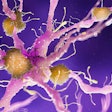
Genetic testing was less commonly performed than expected for patients with autism spectrum disorder (ASD), contrary to recommendations from professional medical societies, in a real-world community study published May 13 in JAMA Psychiatry.
Neurological medicine researchers evaluated how frequently chromosomal microarray (CMA) and fragile X syndrome testing were conducted in people with autism spectrum disorder through the Rhode Island Consortium for Autism Research and Treatment (RI-CART). Results were reported by Dr. Eric Morrow, PhD, head of the Developmental Disorders Genetics Research Program at Brown University, and colleagues in a research letter.
"This study shows that only 3% of participants reported having undergone the recommended clinical genetic testing for ASD, highlighting a dissonance between professional recommendations and clinical practice," Morrow and colleagues wrote.
Unearthing genetic causes
The researchers sought to document real-world testing of people with autism. Morrow and colleagues noted that autism spectrum disorder is "among the most strongly neuropsychiatric conditions, with an increased frequency of rare, deleterious copy number variants and single nucleotide variants."
Several societies of medical professionals recommend offering CMA and fragile X testing for people with autism spectrum disorder, and support is growing for exome sequencing upfront, the authors noted. In a section on autism, the website of the U.S. Centers for Disease Control and Prevention (CDC) cites clinical practice recommendations from the Academy of Neurology and the Child Neurology Society, which recommend genetic testing in children with autism, noting where fragile X testing is helpful.
"However, there is little likelihood of positive karyotype or [fragile X] testing in the presence of high-functioning autism," the CDC advised.
For the study, the researchers evaluated self-reported data on testing in 1,280 people with autism spectrum disorder. Participants were between the ages of 1.75 and 68 years, with the following breakdown:
- 0-4 years: n = 172
- 5-9 years: n = 360
- 10-14 years: n = 408
- 15-19 years: n = 208
- 20+ years: n = 132
Diagnosis had been confirmed, based on assessment with the Autism Diagnostic Observation Schedule. The investigators were especially struck by the low number (3%) who had both CMA analysis and fragile X testing. The use of self-reported data was a limitation of the study.
| Genetic testing in autism spectrum disorder: RI-CART data* | |
| Received some kind of genetic testing | 16.5% (n = 211) |
| Fragile X | 13.2% (n = 169) |
| Karyotyping | 7.2% (n = 92) |
| CMA | 4.5% (n = 57) |
| Fragile X and CMA | 3% (n = 39) |
In the study, genetic testing was more commonly conducted in those who were younger -- mean age of 4.2 years -- and who had been seen by subspecialist pediatricians versus psychiatrists and psychologists. Testing was also more commonly conducted in those with more severe conditions and/or intellectual disability. In the last decade, chromosomal microanalysis has been more frequently performed, while fragile X and karyotyping have waned, the authors reported.
Factors that help explain a decline in genetic testing include patient preferences and insurance constraints -- though testing was more commonly conducted in those who were covered by public insurance (Medicaid) versus private insurance -- and the specialty of the physician managing care.
The results suggest that further work is needed to ensure optimal care, the investigators concluded.

















